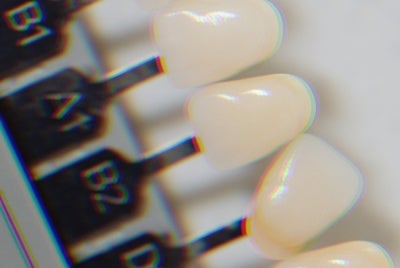Get grounded: Can touching the earth really make you healthier?
Some people believe our bodies actually crave direct contact with the Earth.

You’ve probably heard about the benefits of walking barefoot on the grass or feeling the sand between your toes. But did you know there’s a wellness trend built entirely around that idea?
It’s called grounding and it’s more than just a feel-good moment outside. Some people believe our bodies actually crave direct contact with the Earth.
They say we’re missing out on something important: electrons.
The idea is that all our time spent indoors, surrounded by electronics and artificial environments, throws our bodies off balance, making us more prone to things like inflammation, stress and poor sleep.
Sounds a little out-there? Maybe. But there’s some early science that makes it worth a closer look.
So, what is grounding?
Grounding (or earthing) is simply about reconnecting with the Earth’s natural electrical charge, literally touching it.
That could mean walking barefoot on grass, soil or sand, swimming in a lake, or even just gardening with your hands in the dirt.
Some folks also use grounding shoes or mats indoors.
Supporters say this contact lets electrons flow into your body, acting kind of like antioxidants. And while the research is still in its early days, a few small studies suggest that grounding might help reduce inflammation, improve circulation and even support heart health.
Possible benefits
1. Less inflammation, fewer aches
People who practise grounding often say it helps with muscle soreness and general aches, especially after exercise.
A couple of small studies back this up, showing that those who grounded after working out recovered a bit faster. Is it a miracle cure? No. But it might be worth trying, especially if you're already outside.
2. Better sleep and lower stress
Some research suggests that grounding might help balance cortisol (the stress hormone) and support better sleep. If you’ve ever felt more relaxed after lying in the grass or dipping your feet in the ocean, that might not be a coincidence. These calming effects could be especially helpful for people dealing with stress-related issues like diabetes or high blood pressure.
3. Speedier healing and less pain
There are some reports that grounding can help the body bounce back more quickly after injuries. In one small study, people who grounded had slightly faster healing and less pain from sore muscles. It’s not exactly mainstream medicine, but again, promising.
4. Happier skin
In another experiment, people who spent an hour grounding had better blood flow to their face and skin. The results were captured using a fancy camera and the takeaway? It might help with skin repair and even improve appearance. More studies are needed, but it’s an interesting bonus.
5. Nervous system reset
Grounding may also support your nervous system and heart rate variability (HRV), a sign of how well your body handles stress. One small study found that even 20 minutes of grounding could help. This could matter a lot for people with heart conditions or diabetes, though more research is definitely needed.
How to try grounding?
It’s simple and free. Here are a few ways to ground yourself:
Walk barefoot on grass, sand or soil

Sit or stretch outside with your hands on the ground

Swim in a natural water

Do yoga in a park

Garden with your bare hands

Use grounding shoes or mats (if going barefoot isn’t your thing)
Bottom line
Grounding isn’t a cure-all, and most of the science is still catching up. But there’s something deeply human about reconnecting with nature and if it helps you relax, sleep better, or feel a little more balanced, it might just be worth kicking your shoes off.
Download Sinar Daily application.Click Here!















